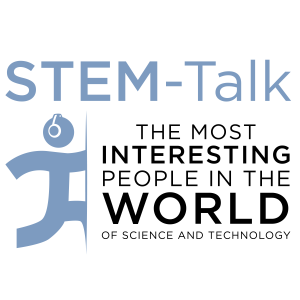
Episode 72: Peter Norvig talks about working at Google, digital privacy, fake news, killer robots and AI’s future
 2018-09-11
2018-09-11
Download
Right click and do "save link as"
Today’s episode features a timely interview with Google’s Director of Research, Peter Norvig. He is also the co-author of “Artificial Intelligence: A Modern Approach,” which is in its third edition and is a leading AI textbook.
In today’s interview, we talk to Peter about fake news, trolls, self-driving cars, killer robots, the future of artificial intelligence, and a lot more.
We also talk to Peter about digital privacy. Tech companies such as Google, Facebook, Twitter and others have been facing heavy criticism recently over the way they handle people’s digital data.
In May, Europe began enforcing a new law that restricts how people’s online data is obtained and used. In June, California passed a privacy law that requires tech and information companies to share how they’re collecting people’s data and how they’re sharing that information. At the moment, Congress is considering a federal privacy law that also covers how personal digital data is handled.
Ken and Peter have a history that goes back to their days at the NASA Ames Research Center in Silicon Valley. Ken was the center’s associate director at the time and recruited Peter to become the center’s chief of the Computational Sciences Division.
In today’s episode, we discuss:
How artificial intelligence has changed since the days when Peter first became a practicing AI professional. [00:19:20]
How AI research is now increasingly driven by commercial interests rather than government grants. [00:23:39]
What deep learning is and what the word “deep” means in this context. [00:27:48]
The philosophical questions that surround AI, such as: “What does it mean to be intelligent?” and “Can a machine be conscious?” [00:36:58]
Search function and privacy. [00:44:32]
Google’s responsibility for the content posted on their platforms. [00:50:06]
The problems that arise when tech companies police content. [00:51:17]
Peter’s thoughts about a meeting Elon Musk had with U.S. governors where he urged them to adopt AI legislation before “robots start going down the street killing people.” [00:56:18]
The meaning of “singularity” and whether Peter believes in it. [01:03:19]
Peter’s advice for listeners who are interested in going to work for Google someday. [01:12:10]
Show notes:
[00:02:15] Dawn begins the interview asking Peter about an interview he did with FORBES magazine where he said, “I don’t care so much whether what we are building is real intelligence. We know how to build real intelligence. My wife and I did it twice, although she did a lot more of the work. We don’t need to duplicate humans, that’s why I focus on creating tools to help us rather than duplicating what we already know how to do. We want humans and machines to partner and do what humans and machines couldn’t do on their own.” Dawn asks Peter to expand on this belief and how it influenced his career.
[00:03:23] Dawn asks Peter about growing up in Boston and his habit of writing the local newspaper to complain about innumeracy and the sloppy language in its science stories.
[00:04:36] Ken mentions Peter’s father was a math professor and his mother an English literature professor. While in high school, even though teachers suggested a career in journalism, Peter decided to learn programming instead. Peter talks about how he also took a class in linguistics, which led him to start thinking about using computers to process natural language.
[00:05:54] Dawn asks Peter about classes he took at Brown University that led him to start thinking about artificial intelligence.
[00:07:00] Dawn mentions that Peter went to the University of California Berkeley for his Ph.D. and asks him what motivated him to enroll in the computer science department and research AI.
[00:08:03] Dawn asks Peter about the research he did after receiving his Ph.D. and becoming an assistant professor at University of Southern California as a research faculty member.
view more
More Episodes
012345678910111213141516171819
Create your
podcast in
minutes
- Full-featured podcast site
- Unlimited storage and bandwidth
- Comprehensive podcast stats
- Distribute to Apple Podcasts, Spotify, and more
- Make money with your podcast
It is Free
- Privacy Policy
- Cookie Policy
- Terms of Use
- Consent Preferences
- Copyright © 2015-2024 Podbean.com



